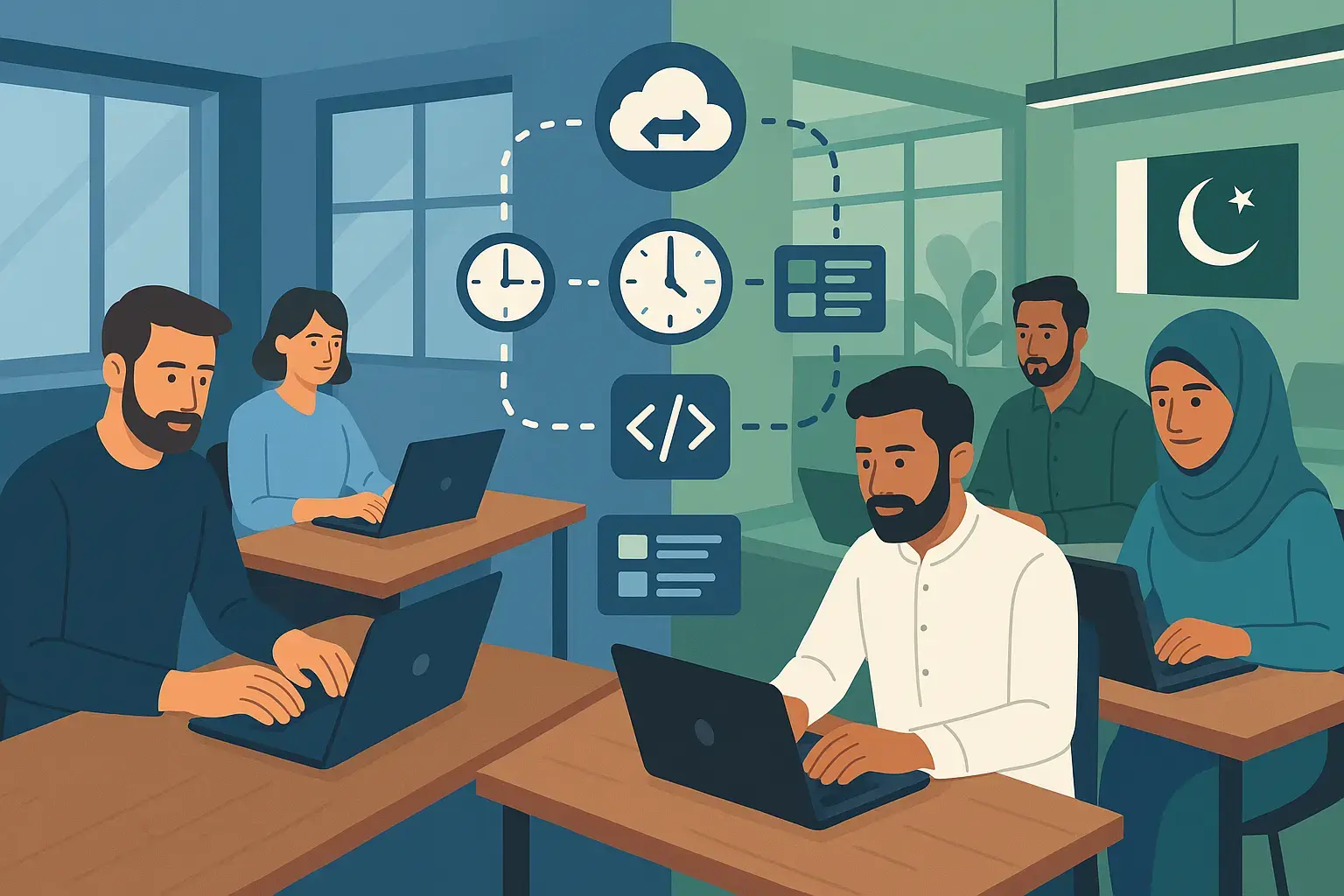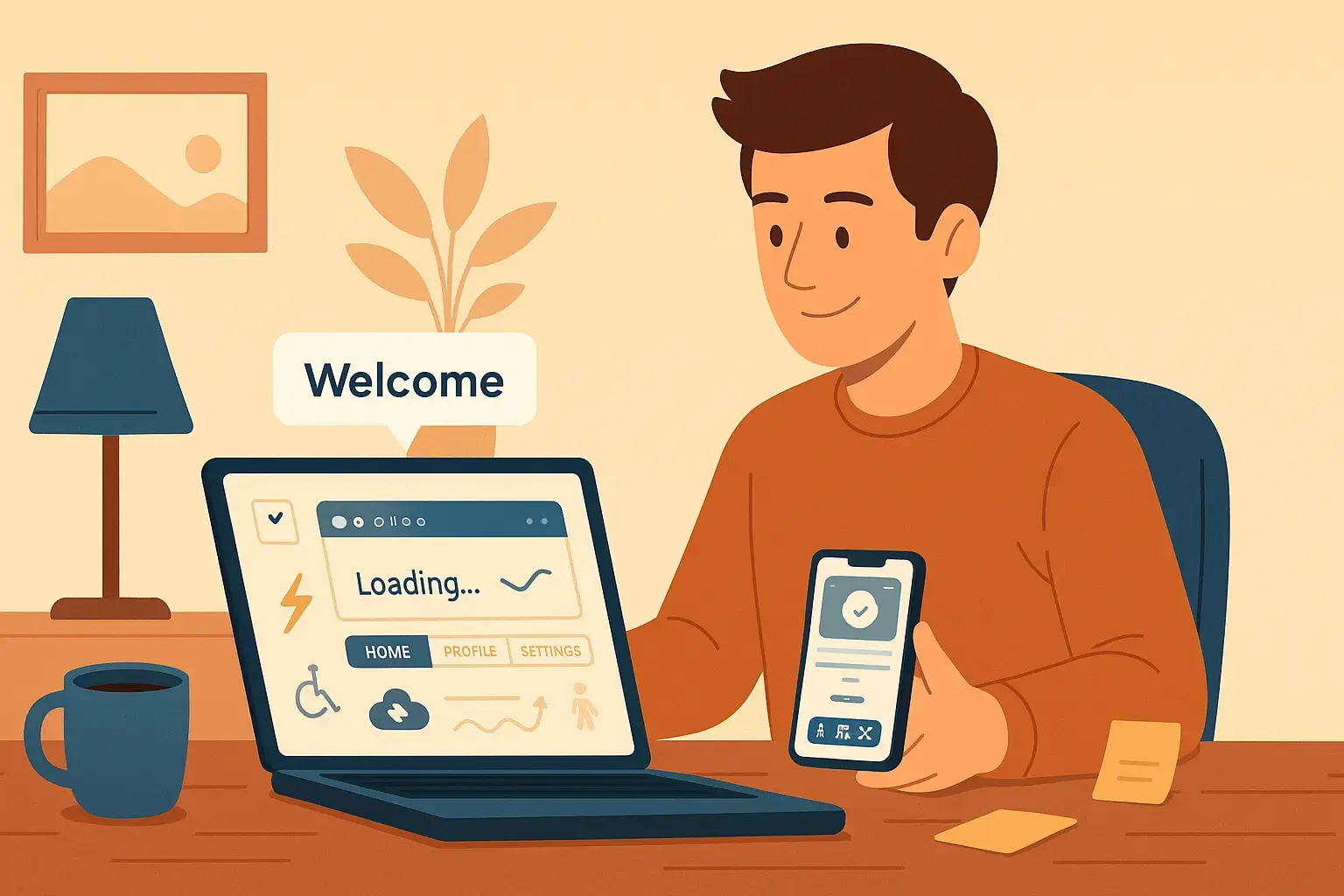

How AI Is Shaping the Future of Web & App Development
Let’s be honest—building websites and apps used to be a grind. Hours spent writing boilerplate code, struggling with layout issues, and hunting for bugs that somehow only show up in production. But over the last few years, AI has started quietly sneaking into our toolkits, and now it’s not just assisting—it's reshaping how we work entirely.
This isn't some distant future where robots write entire apps on their own. What’s happening right now is far more interesting: developers and AI working together, each doing what they do best. Here’s how AI is already changing the game in web and app development—and what that means for those of us in the trenches.
Design Workflows Are Getting a Huge Upgrade
If you've ever used Figma, Adobe XD, or any design tool in the last year, you’ve probably seen some AI magic in action. Now you can describe a layout—“I want a clean dashboard with graphs on the left, user stats on the right”—and the tool actually creates it. No dragging boxes around for hours. No fiddling with color palettes unless you want to.
This is huge for small teams or solo devs who don’t have a full-time designer. You get a professional-looking design in minutes, then jump straight into development. It’s not replacing creative professionals, but it’s definitely speeding up the process.
Coding with a Copilot (Literally)
GitHub Copilot, ChatGPT, and similar tools have become second brains for a lot of developers. You're writing a function, and it finishes your sentence like it knows what you’re building. It suggests logic, generates boilerplate, and even helps fix bugs—and yes, sometimes it’s wrong, but it’s right often enough to save serious time.
This doesn't mean developers are being replaced. It just means we can move faster. We’re not spending hours searching Stack Overflow for the 18th time trying to remember how to debounce a function or fetch data in React. AI gets us closer to “thinking in features” instead of getting lost in syntax.
Testing and Debugging Are Way Less Painful
Testing is essential, but let’s be real—writing test cases is rarely anyone’s favorite part of the job. Now there are tools that can auto-generate unit tests based on your code. Others can scan your whole app and spot logic gaps or suggest improvements based on real-world patterns.
AI can also read your error logs, spot patterns, and give you a guess at what’s going wrong before you’ve even read the stack trace. It’s like having a teammate who never sleeps and has read every GitHub issue ever filed. Debugging is still an art—but now you’re not doing it alone.
Smarter, Faster Back-End Development
On the back end, AI is speeding up a lot of the grunt work. You can describe a database schema or API endpoint in plain English, and a tool like Supabase, Retool, or AI-enabled IDEs will build it for you. Want a REST API that returns orders by customer ID? Done.
Even more interesting: AI can analyze user data and give product teams real insights without needing an analyst to write SQL. Ask a question—"Which product category has the highest repeat buyers?"—and it gives you an answer, sometimes with charts included. That’s a serious time-saver for decision-makers.
Personalized UX Isn’t Just for Big Tech Anymore
AI is what powers personalized feeds, smart search bars, and even those eerie-but-helpful “you might also like” recommendations. The difference now is that these tools are becoming accessible to everyone, not just Netflix and Amazon.
If you’re building an e-commerce app, AI can help surface products based on user behavior—even with limited data. If you’re working on a news site, it can personalize the homepage layout in real time. This used to require a team of data scientists; now, it’s built into libraries and services anyone can plug into.
Deployment and Maintenance Are Smarter Too
Once your app is live, AI doesn’t clock out. Platforms like Vercel, Netlify, and even traditional cloud providers are using AI to auto-scale resources, detect performance issues, and sometimes even fix problems before you notice.
Some systems can now do “self-healing”—if something goes wrong, they roll back the change or restart the service automatically. That’s not just convenient—it’s peace of mind, especially when you’re running lean and can’t afford a full-time ops team.
The Real Win: Developers Get to Focus on the Fun Stuff
Here’s the best part: AI handles the boring stuff. That means developers can spend more time on creative problem-solving, experimenting with new ideas, or just building things they’re excited about. Instead of getting stuck writing repetitive CRUD operations, you’re focusing on what actually makes your app different.
It also means people who aren't traditional coders can start building. Designers, marketers, and entrepreneurs—they're all using AI-assisted tools to prototype apps, run tests, and even launch MVPs. That doesn’t threaten developers; it raises the floor so more people can contribute to digital innovation.
Final Thoughts
There’s a lot of hype around AI, and not all of it is helpful. But when it comes to web and app development, the shift is real—and it’s already here. AI isn’t replacing developers, but it is changing how we work. It’s helping us build faster, experiment more, and focus on the parts of development that actually require human creativity and judgment.
The tools will keep evolving. Maybe one day we’ll describe an entire app in a single sentence and have it built for us. But even then, someone still needs to dream up that sentence. Someone needs to understand the user’s pain point. Someone needs to ask, “What are we building and why?”
And that someone? Still very human.

